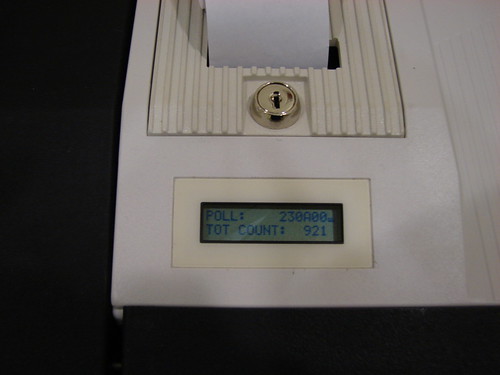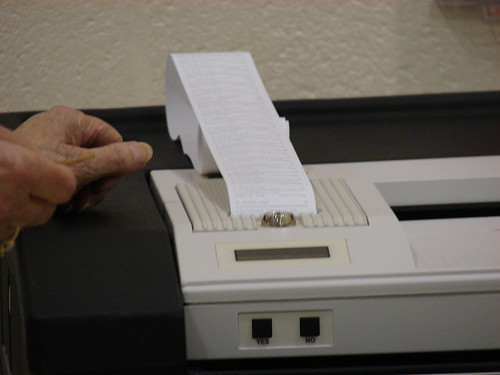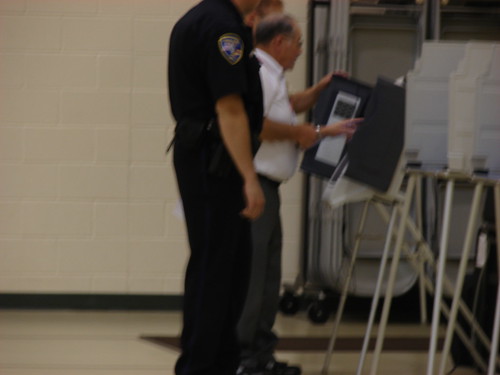Last week I warned that the proposed legislation was so broad, sweeping, and dangerous that it allows the Secretary of the Treasury, Henry Paulson, to confiscate
All of Microsoft for a BuckAfter week of frenetic activity which has lengthened the proposed legislation from
3 pages to
110 pages, Congress now has the
Emergency Economic Stabilization Act of 2008 before it. The result is longer, wordier, and supposedly better than the original 3-page proposal, but the new version still allows Secretary Paulson to confiscate all of Microsoft for a buck.
The key elements I noted which are needed to confiscate all of Microsoft for a buck were:
- Define mortgage asset to include Microsoft
- Set the "price" to one dollar
- prevent judicial review of the confiscation.
All of these elements remain in the newer, "better" version of the bailout.
Define mortgage-asset to include MicrosoftThe definitions in Section 3 of the new proposal drop the term "mortgage asset" and substitutes the term "troubled asset". Section 3(6)(B) defines a "Troubled asset" as:
- The term "troubled assets" means any other financial instrument that the Secretary, after consultation with the Chairman of the Board of Governors of the Federal Reserve System, determines the purchase of which is necessary to promote financial market stability, but only upon transmittal of such determination, in writing, to the appropriate committees of Congress.
As I stated last week,
consultation is not the same as
approval. But if the definition of "trouble asset" is not broad enough for the Secretary, then Secretary Paulson can re-define "Troubled Asset" to be whatever he wants it to mean under Sec. 101(c)5. Sec. 101(c)5 is the same as paragraph 2(b)(5) of the
original proposal and reads:
- The Secretary is authorized to take such actions as the Secretary deems necessary to carry out the authorities in this Act, including, without limitation, issuing such regulations and other guidance as may be necessary or appropriate to define terms or carry out the authorities or purposes of this Act.
"Troubled Asset" is what every the Secretary wants to purchase/confiscate.
Set the price to one dollarSEC. 101(a)(1) of the newer version has more words than paragraph 2(a) from the original proposal, but it still lets the Secretary of the Treasury to arbitrarily set the "price" of a "troubled asset". SEC. 101(a)(1) reads:
- The Secretary is authorized to establish a troubled asset relief program (or "TARP") to purchase, and to make and fund commitments to purchase, troubled assets from any financial institution, on such terms and conditions as are determined by the Secretary, and in accordance with this Act and the policies and procedures developed and published by the Secretary.
Prevent Judicial reviewSection 8 of the original proposal stated there would be no judicial review. Here the newer proposed legislation looks better, but this is largely illusionary. Section 119 is entitled:
Judicial Review and Related Matters. In true Orwellian fashion though, Section 119 is nothing but a laundry list of
limitations on judicial review. Sec 119(1) states the standard of judicial review is
Title 5 chapter 7 which seems to allow very broad judicial review. Section Sec 119(2)(A) though guts most forms of judicial relief and reads:
- No injunction or other form of equitable relief shall be issued against the Secretary for actions pursuant to section 101, 102, 106, and 109, other than to remedy a violation of the Constitution.
The limitation on Judicial review with the most perverse possibilities though is Sec 119(3)which reads:
- No action or claims may be brought against the Secretary by any person that divests its assets with respect to its participation in a program under this Act, except as provided in paragraph (1), other than as expressly provided in a written contract with the Secretary.
If the divestment is not consensual as in my hypothetical confiscation of Microsoft, the victim (Microsoft) cannot bring suit unless the Secretary allows the review.
But even if a court happens to review the Secretary's actions, it can offer limited relief and can declare the transaction NULL and void only AFTER the confiscation has occurred. By then the damage is done and hard to impossible to repair.
Legislative OversightThe rest of the 110 pages supposedly put in place strict legislative oversight.
As this article points out, this is true, but worthless. The newer proposed legislation requires the Treasury Secretary and his Wall Street agents
report their activities to two oversight boards. Again, I must cynically point out that
report to is not the same as
seek the approval of. There is no limitation on what Secretary Paulson and his hired cronies can
DOonly that they prepare reports on what they have already
DONE. Congress can huff and puff, but has abdicated the ability dismantle the house Secretary Paulson is scheming to build.
The numbers of the congress critters in this area are
- Sensenbrenner: (202) 225-5101
- Kohl: (202) 224-5653
- Feingold: (202) 224-5323
Call today and stop this naked power grab which enables the transfer wealth from us, US citizens, to politically-connected Wall Street Banksters.




 .
.
